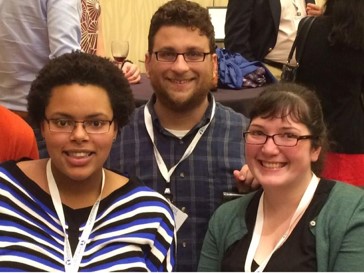Many congratulations to Dr. Cynthia Boyd, who was named the new Director of the Division of Geriatric Medicine and Gerontology of the Johns Hopkins School of Medicine at the beginning of August. She previously held the position as Interim Director after Dr. Samuel Durso became the Director of the Department of Medicine at JHBMC in 2020.
In addition to her appointment as Professor of Medicine, Dr. Boyd has joint appointments in Health Policy and Management and in Epidemiology at the Johns Hopkins Bloomberg School of Public Health. Beyond being core faculty at COAH, she is also faculty with the Roger C. Lipitz Center for Integrated Health Care, as well as the Johns Hopkins Center for Transformative Geriatric Research. She is a Multi-Principal Investigator with the US Deprescribing Research Network. And she co-directs a T32 grant on Health Services Research Outcomes for Aging Populations. Additionally, Dr. Boyd is a Center for Innovative Medicine Scholar. Earlier this year, she was inducted into the American Society for Clinical Investigation.
A former Beeson Scholar and Robert Wood Johnson Physician Faculty Scholar, Dr. Boyd earned her MD from Duke University and her MPH from the University of North Carolina at Chapel Hill. She completed her residency at Johns Hopkins and performed a fellowship in geriatric medicine and gerontology at Johns Hopkins.
Known for her affable nature, keen research insights, strong commitment to mentorship, and international expertise in the care of persons living with multiple chronic conditions, we at COAH are confident in her leadership, and wish her all the best in her new leadership role.




 The COAH family congratulates the Johns Hopkins Epidemiology and Biostatistics of Aging (EBA) Training Program upon the great news that the National Institute on Aging refunded this remarkable T32 training for another five years! Continually funded since its start in 1996, and led by Karen Bandeen-Roche, PhD, that means the EBA will successfully reach 30 years! This is a remarkable accomplishment.
The COAH family congratulates the Johns Hopkins Epidemiology and Biostatistics of Aging (EBA) Training Program upon the great news that the National Institute on Aging refunded this remarkable T32 training for another five years! Continually funded since its start in 1996, and led by Karen Bandeen-Roche, PhD, that means the EBA will successfully reach 30 years! This is a remarkable accomplishment. Over the past 25 years, the EBA has trained more than 50 doctoral trainees and 30 postdoctoral fellows, many of whom have gone on to high-ranking academic, research and leadership positions at Johns Hopkins, Harvard University, the National Institute of Aging, Rush University, Stanford University, University of Pennsylvania, University of Southern California, Wake Forest University among many other fine institutions in the field. In their careers, EBA program alumni have received a cornucopia of research grant awards (such as R01, R21 and U grants), as well as a career development grant awards (including K01 and K999/R00 grants).
Over the past 25 years, the EBA has trained more than 50 doctoral trainees and 30 postdoctoral fellows, many of whom have gone on to high-ranking academic, research and leadership positions at Johns Hopkins, Harvard University, the National Institute of Aging, Rush University, Stanford University, University of Pennsylvania, University of Southern California, Wake Forest University among many other fine institutions in the field. In their careers, EBA program alumni have received a cornucopia of research grant awards (such as R01, R21 and U grants), as well as a career development grant awards (including K01 and K999/R00 grants).